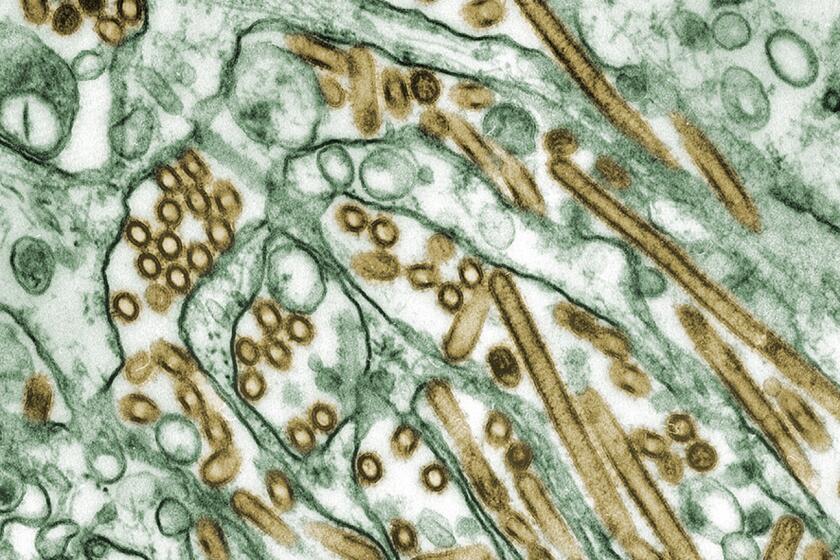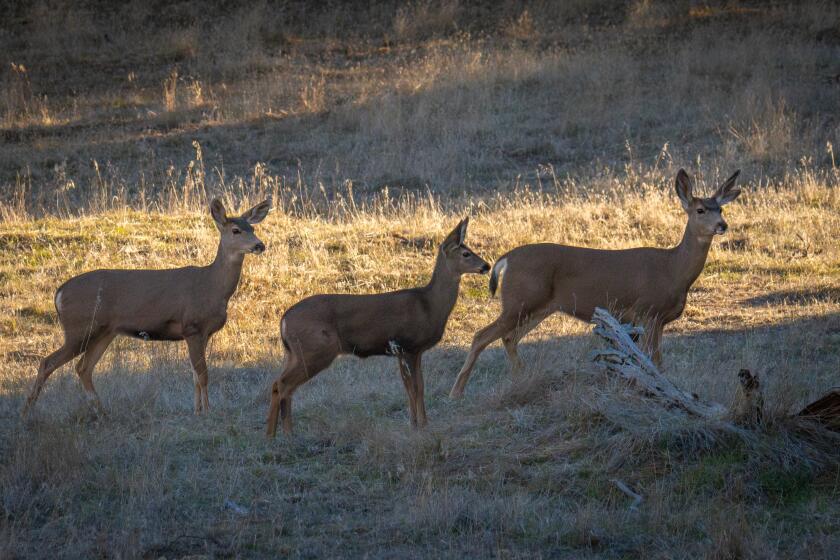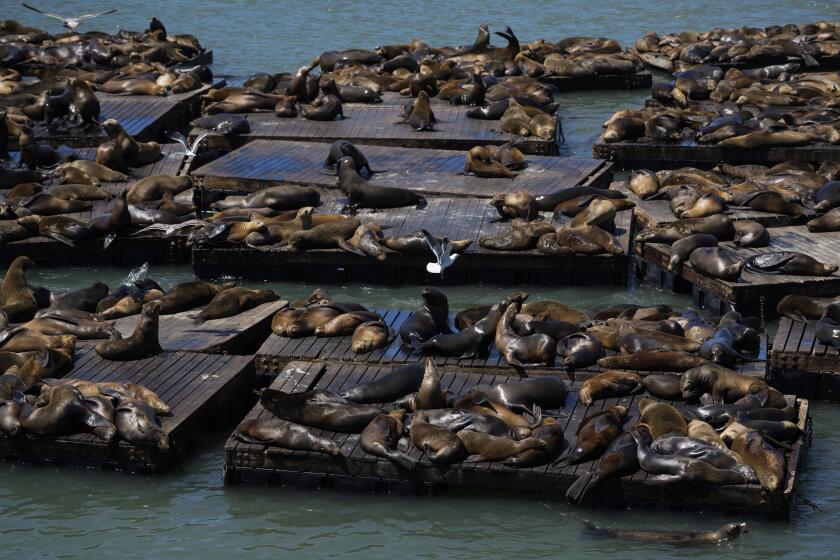‘I have to stick around here to make sure the cats get a fair shake.’
The dining area is small but tidy and protected from the elements. The plates are plastic and the milk is served in tuna cans. It’s not exactly Chasen’s, but the diners were chowing down as if it were not only the best meal they had ever eaten, but possibly their very last. Tails twitching, ears laid back delicately on their feline heads, they were methodically taking large mouthfuls of cat kibble, then warily peering across the Lockheed parking lot.
Marie Newberry, known as the Cat Lady of Lockheed, watched the dinner party in the dawn light. She looked pleased. “They’re looking real healthy, aren’t they?” she asked, admiring the feral cats’ thick fur and the new cat feeding station built at the aerospace firm’s Burbank plant.
The station, created after months of negotiations between Lockheed officials and animal rights volunteers, is considered an innovative solution to the cat problem at the plant. And if the pilot project works out well, it will undoubtedly be a blueprint for other companies that have similar animal problems, animal rights officials said.
It was almost a year ago that Newberry was fired from her sheet-metal job at the plant because she refused to stop feeding the cats.
The animals, which for years had been fixtures at the plant, lived in equipment sheds and warehouses. The cats had kept the rodent population down, but when they multiplied to more than a hundred, officials hired a pest control company to get rid of them. Lockheed also demanded that Newberry stop feeding the cats, contending that they were a health and safety problem. Newberry, who for most of her 35 years had risen daily at 2 a.m. to make the cat feeding rounds before going to her 7 a.m. job, refused. After repeated warnings, she was fired.
After Newberry’s plight was chronicled in The Times, there was an outpouring of public sympathy. Actors and Others for Animals and another animal activist group, C.A.T.S. (Cats At The Studios), protested to company officials. The International Assn. of Machinists filed a formal grievance, and soon Newberry was reinstated to her supervisory job.
Now, after months of negotiations, a plan to allow the cats to stay at the plant has been worked out, with all parties pitching in to help on the project. Lockheed officials built the 10-foot-long fenced and roofed run in which food is placed. There are several wooden enclosures in the feeding station so that the animals can seek shelter in cold weather. Outdoor carpeting and paneling to give the cats more privacy will also be installed.
Newberry has continued to feed the cats, using her own money for the $35-a-day bill. C.A.T.S. volunteers have been trapping the cats, paying to have them spayed and neutered, and returning them to the plant. (The nonprofit organization was started several years ago by Elyse Mayberry, a movie studio employee, to take care of the stray cats at several local movie studios.)
The volunteers have also offered Lockheed officials assistance in emergencies. The other day, for example, C.A.T.S. volunteer Cristin Allen crawled up on a warehouse roof to coax down a stranded cat.
Allen says the group eventually hopes to get aerospace workers to organize their own chapter of C.A.T.S. at Lockheed, so the feeding program can continue after Newberry retires. Efforts are also under way to raise money to help her feed the cats. (Donations, earmarked for the Lockheed cats, can be sent to C.A.T.S., P.O. Box 1883, Burbank, 91507.)
But Newberry is in no hurry to retire, even though she is 69 years old. “I have to stick around here to make sure the cats get a fair shake,” she says, pouring milk into a can for the dozen or so cats that had earlier scampered up a ramp to the feeding station after hearing her car arrive. “They won’t come out for anyone else.”



